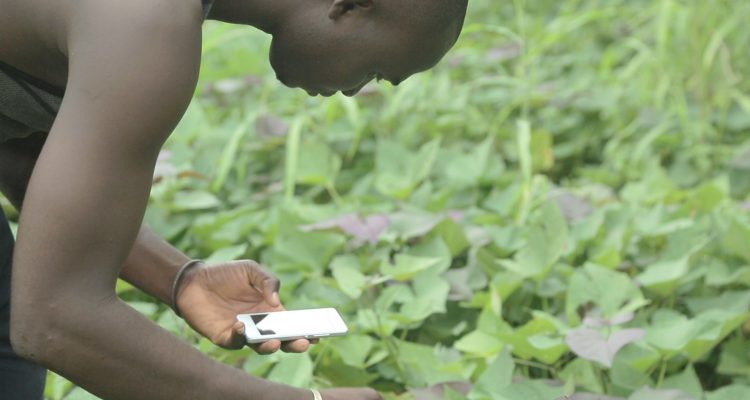Africa has a large number of untapped arable land reserves. Despite the fact that agriculture contributes more than 62% of the continent’s gross domestic product, it continues to import more than $ 4 billion in food products. Agriculture has a prominent place in achieving Africa’s development goals. As a motor of job creation, agriculture constitutes 60% of jobs in Sub-Saharan Africa. Despite the efforts made in the sector for its development, agriculture is experiencing little development compared to that of other continents. Africa should take advantage of rising global demand for agricultural products to develop the agricultural sector. Added to this is the amplification of climate change, which threatens crops.
Agriculture and African youth …
Africa’s youth are not always quick to get into farming. In Moungo in Cameroon, for example, young people have abandoned their parents’ coffee and cocoa plantations. For good reason, the industry being in a bad situation, any investment would be for them not only a waste of time but also of money. Information and Communication Technology could therefore be a bait for young people to get into agriculture. However, it is not just a matter of creating a plethora of applications, but also of actually assessing the impact of those applications.
Contribution of ICTs to African agriculture
Managing agriculture as it used to be would be a serious mistake, not providing a favorable solution for the future of African agriculture. Take the case of Kenya, where the World Bank is developing the analysis of agro-meteorological observations, thus ensuring precise monitoring of climatic conditions. The data for this analysis are obtained by remote sensing technologies and geographic information systems.
Another easy way to use ICT is to use a cell phone. The Hello Tractor company makes it easy for Nigerian and Kenyan farmers to hire tractors at low cost. In addition, thanks to tutorial videos (designed by the organization Digital Green), farmers in Niger, Ethiopia, Malawi and even Ghana are trained in best agricultural practices and at a lower cost.
The use of solar energy is no exception. In order to reduce huge losses of milk, Kenyans are powering their refrigerators with solar energy. On the other hand, through blockchain technology, financial transactions are not only easier but also less expensive for the various players in the sector.
Rather slow evolution …
We all agree that digital technology and agriculture go hand in hand, and would even allow Africa to rise to the top. However, despite the 33 million users (of which just 40% actually make use of said digital tools) registered on platforms boosting agriculture in Africa, there is not much progress. Let us not forget that efforts must be made at all levels, both at the level of actors in the sector and at the level of governments. The table below summarizes some essential conditions for a better rendering:
Minimum conditions Favorable conditions
Availability of technologies Internet use
Connectivity of areas Use of mobile phones
Low cost Computer skills
Digital literacy A culture of innovation and agricultural entrepreneurship
Through this table we realize, when it comes to minimum conditions, that we still have a lot of work to do. In the sense that most of the farmers are in rural areas. Areas not always connected, just like farmers. So there is digital education work to be done.African governments must therefore invest in infrastructure, communication technologies and finance. On the other hand, when setting up digital solutions, we must not forget that farmers are at the center of concerns.Therefore, the solutions will have to be adapted to their needs.
According to Tim Willis, COO at Aerobotics (an agritech startup based in South Africa) “the ability of smallholders to use digital solutions intelligently can help transform agriculture on the continent”. There are no less than 390 active digital solutions in Africa. Solutions contributing to an increase of almost 73% in agricultural productivity and 37% in income. Super-platforms like them help improve farmer yields by 168%. Digitization of agriculture is not only beneficial in terms of yield or economically, but also environmentally. However, this transformation will face many obstacles, such as access to digital technologies or services. Additionally, smallholder farmers can fall behind due to their digital illiteracy or even access to digital resources. Hence the leading role of African governments in creating the conditions necessary for digital transformation in rural areas.


Leave a Reply